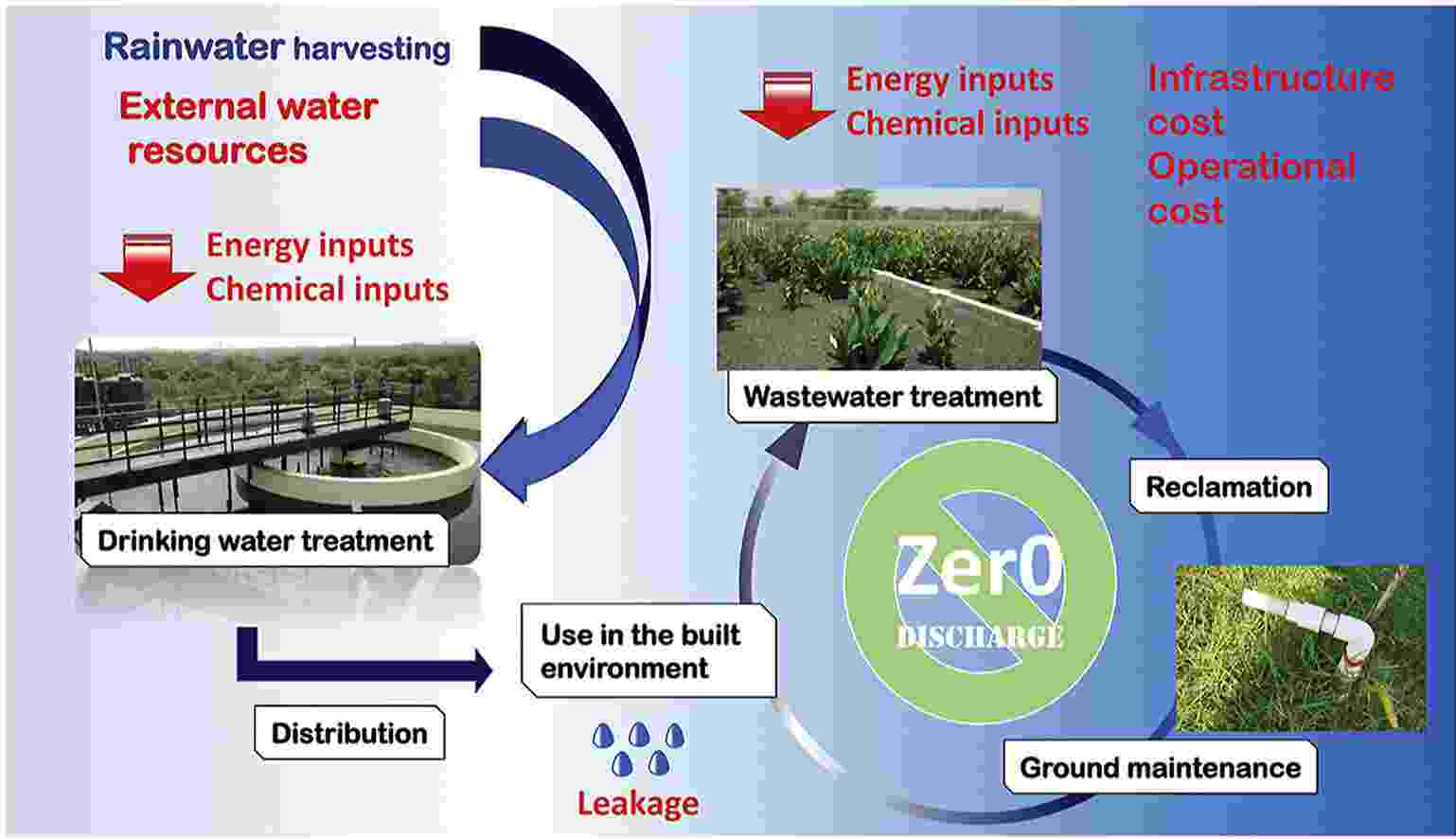Real-world sustainability analysis of an innovative decentralized water system
A study investigating an innovative decentralized water system, combining rainwater harvesting with wastewater reclamation
14 November 2020


Graphical abstract, taken from paper
Authors: Jian Zang, Manish Kumar, David Werner
This study investigated an innovative decentralized water system which combined rainwater harvesting with wastewater reclamation to generate 39% of the water resources needed for a higher education institution with student and staff accommodation in India. We collected performance data to critically appraise the current water system, design alternatives and water management optimization opportunities. The campus was recently built in a hot, semi-arid region of India with a summer, monsoon and winter season. It represented in a microcosm the vision of leading Indian engineers for a more sustainable urban systems future. We collated the water infrastructure costs, blue and recycled water demands, chemical demands, electricity demands and operational costs over a calendar year.
The annual institutional water demand was 379,768 m3, of which 32% was sourced from reclaimed wastewater, and 7% from roof-collected rainwater. Electricity consumption was 0.40 kWh/m3 for drinking water treatment, and 0.62 kWh/m3 for wastewater treatment, in line with median values reported for centralized systems. Rainwater harvesting and wastewater reclamation accounted for 42% of the water infrastructure costs, with a predicted payback period of >250 years through reduced operational costs. Scenario analysis recommended a water system design alternative with wastewater reclamation for ground maintenance only, which was predicted to yield similar environmental benefits, with an infrastructure cost payback period of only 15 years. Scenario analysis also revealed how better water management to address leakage, and more drought-tolerant landscaping, could improve environmental metrics of the current system by up to 52% and reduce operational costs by up to 23%. Reducing high domestic water usage was found to be essential to secure gains achieved with water infrastructure innovations. Rainwater harvesting had high infrastructure costs, and water policy in low- and middle-income countries should instead support wastewater reclamation and best practice in water management.
Images:
Graphical abstract, taken from 'Real-world sustainability analysis of an innovative decentralized water system with rainwater harvesting and wastewater reclamation', Journal of Environmental Management, licensed under CC BY 4.0. [accessed 22 Sep, 2022]



